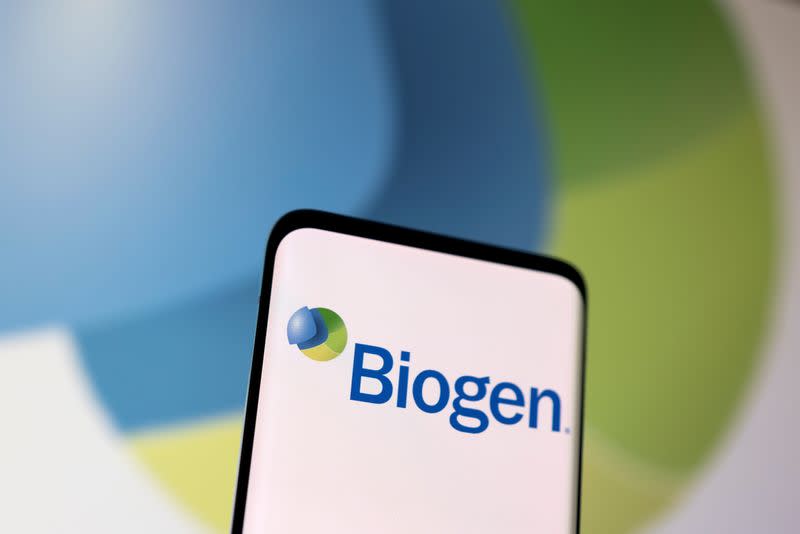Biogen in up to $1.8 billion deal as rare diseases take center stage

(Reuters) -Biogen said on Wednesday it had agreed to buy privately held Human Immunology Biosciences for up to $1.8 billion, bulking up on rare disease medicines as its older multiple sclerosis drugs face tepid demand due to rising competition.
Human Immunology's (HI-Bio) felzartamab has completed mid-stage studies for a type of kidney disease called primary membranous nephropathy, and in patients with a disease where the immune system makes antibodies that damage their transplanted organ.
The San Francisco-based company is also testing the therapy in patients with another chronic kidney disease known as IgA nephropathy. The therapy developer plans to conduct late-stage trials.
Since Christopher Viehbacher took the helm in late 2022, Biogen has acquired rare disease drugmaker Reata for $6.5 billion, abandoned its controversial Alzheimer's disease drug Aduhelm and cut jobs.
The company is now counting on newer medicines such as a second approved Alzheimer's drug Leqembi, developed with Japanese partner Eisai, as well as Reata's Skyclarys to help drive growth.
The deal consists of $1.15 billion in upfront and up to $650 million in potential payments if felzartamab achieves certain development milestones.
The deal is expected to close in the third quarter, the companies said on Wednesday. HI-Bio is backed by investors such as biotech-focused ARCH Venture Partners and Monograph Capital.
(Reporting by Manas Mishra and Sriparna Roy in Bengaluru; Editing by Sriraj Kalluvila)

 Yahoo Finance
Yahoo Finance 